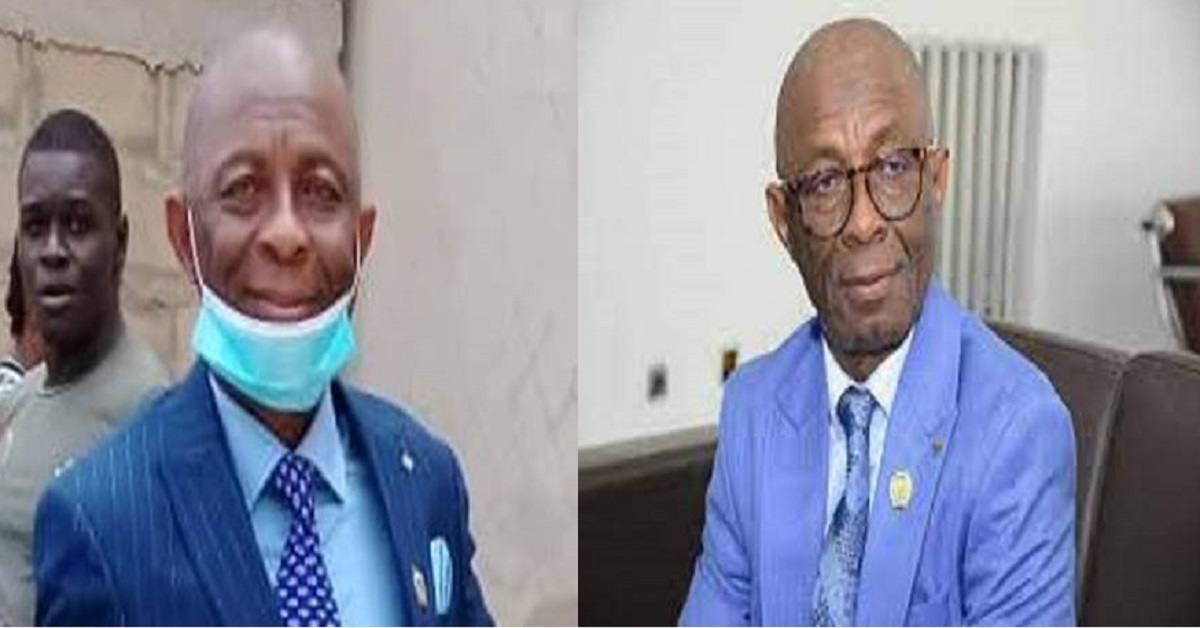The Ambassador to Senegal, Mauritania and Cabo Verde for Sierra Leone in an interview with APA-Dakar (Senegal) is on the campaign trail for the re-election of President Julius Maada Bio who he credits for continuing stability more than twenty years after a brutal civil war.
In the interview, the diplomat explains that President Bio has managed to deal with ‘exogenous shocks’ during his first term, while striving to give a better image on the international scene to this West African country that went through civil war between 1991 and 2002.
When asked about the track record of President Julius Maada Bio who is seeking a second term? He replied that, ‘President Bio’s merits are recognized at home and abroad. The implementation of his first term commitments in the areas of education, gender equality, rural electrification, freedom of the press, establishment of service delivery agencies (disaster management, anti-corruption etc.) has received positive international ratings. President Bio’s progressive and liberal reforms in the education sector, the abolition of the death penalty, the repeal of the Public Order Act, the empowerment of women and his commitment to better laws are also a reality in Sierra Leone’.
Questions arises about the main opponent, Samura Kamara who thinks the outgoing president has failed to address economic difficulties. That it is said to be the reason for the violent protests in August 2022 that left dozens dead. How do you respond to this criticism? He said, ‘Dr. Kamara has held very high positions in this country. If there had been a really good management policy on his part, the country would not have slipped into austerity. His statement is therefore false and is designed to mislead credible citizens. In contrast, the August 10, 2022, demonstrations were not triggered by the difficult economic conditions. A special committee of investigators found that the demonstrations were planned, financed and executed by well-known members of the opposition to overthrow the government. This is unacceptable!’
When he was asked what the Bio administration is doing to address the economic crisis, particularly the sharp depreciation of the local currency (Leone) and hyperinflation, which has exacerbated the problem of hunger and poverty in Sierra Leone?
He said, ‘President Bio is in his first term. It is not easy to solve all the problems in four or five years. Despite the exogenous global shocks, he has sought to stabilize the country. Economic crises are not
exclusive to Sierra Leone. The Covid-19 pandemic and the Russian-Ukrainian war have exacerbated the economic difficulties in the world, particularly in Africa. Inflation predates the arrival of the head of state. Previously, Sierra Leonean civil servants did not receive their salaries on time. That is now a thing of the past. Basic necessities, which can be expensive, are available in the market anyway. The President of the republic has created a fund to support poor households. He is doing his best to improve the socio-economic situation’.
Last February, the opposition cried foul after the Supreme Court approved the Electoral Commission’s decision to introduce proportional representation in the legislative elections. Doesn’t this choice create doubts about the transparency of the elections in the eyes of the international community?
He replied, ‘Not at all! Proportional representation is not new to the country’s politics. It is a constitutional instrument that was reintroduced after being used in 1996 and 2002. This time, the bill was submitted to parliament for consideration. But the opposition chose to complain to the Supreme Court. However, the court upheld the defense argument that proportional representation is a provision in Article 38 of our constitution. So I do not see the reason why the international community would disagree with the decision of the highest court in the land’.
When he was asked what would be the biggest challenges for Sierra Leone in the near future? The diplomat replied that, ‘The fight against climate change is probably the biggest challenge facing Sierra Leone. The impact is already being felt as in 2015 a major landslide occurred, killing hundreds of people in the country.
We are starting to lose some of our hills and forests. Major floods have become frequent to the dismay of the people. With the establishment of the National Disaster Management Agency, the government seeks to mitigate these hardships for Sierra Leoneans by working around climate change adaptation.
Besides, President Bio used to say that a well-fed country is well educated. In addition to education, he will devote great efforts to agricultural development if re-elected’.


 Post a comment
Post a comment








